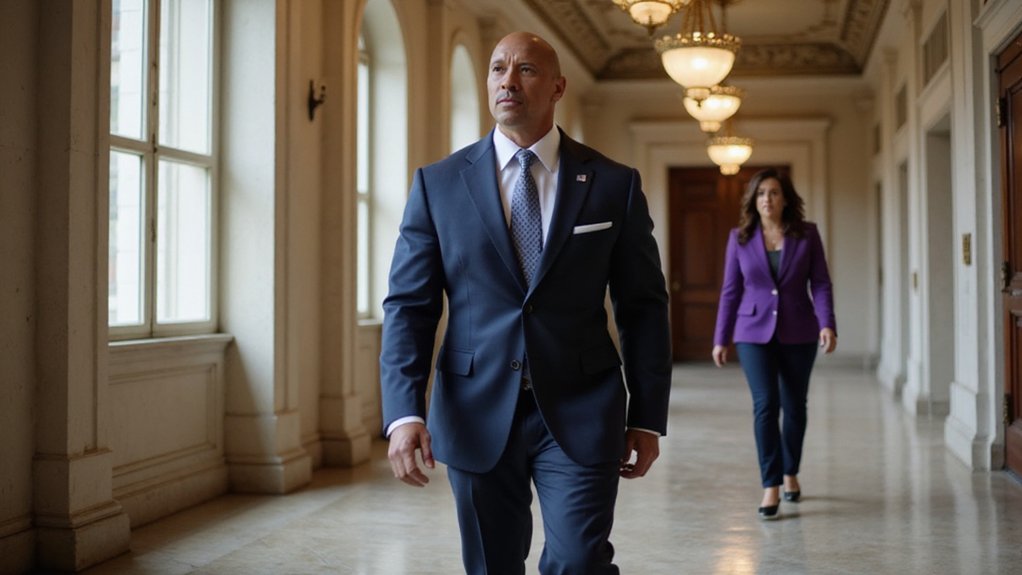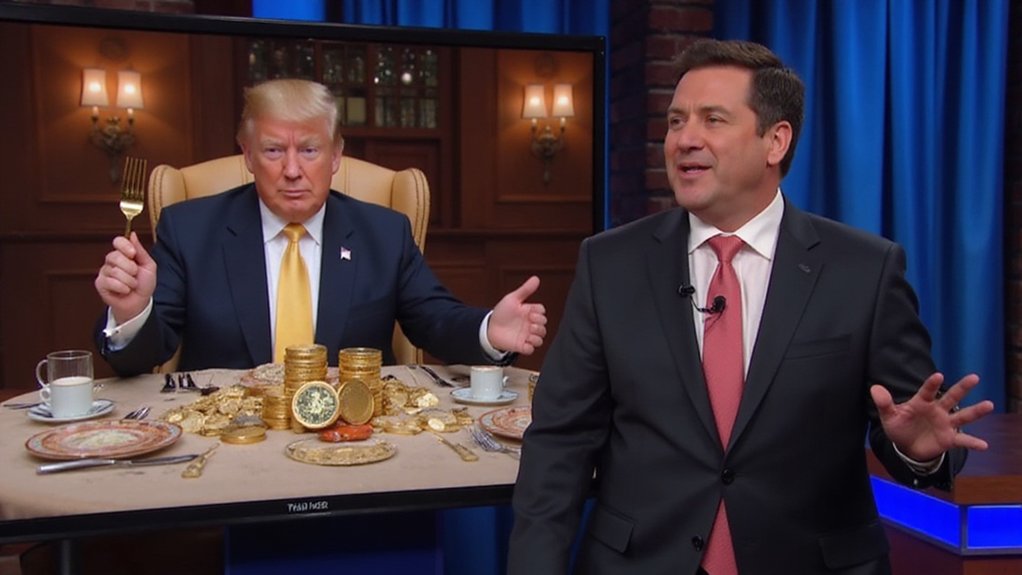While traditional political handicappers parse legislative records and campaign war chests, Polymarket traders have elevated Dwayne “The Rock” Johnson to fourth place in the 2028 Democratic nomination odds—a positioning that places the former WWE champion ahead of sitting Vice President Kamala Harris and within striking distance of Transportation Secretary Pete Buttigieg.
Johnson’s odds hover between 7-8%, marginally exceeding Harris’s 5% probability while trailing California Governor Gavin Newsom‘s commanding 31% and Representative Alexandria Ocasio-Cortez‘s 11%. The betting volumes tell their own story: Johnson has attracted over $470,000 in speculative interest, while Harris commands approximately $526,000—figures that underscore the market’s genuine engagement with these scenarios rather than mere novelty wagering.
Market dynamics reveal genuine political speculation, with Johnson’s $470,000 betting volume approaching Harris’s $526,000 despite his entertainment background.
The 52-year-old actor, who boasts 392 million Instagram followers and a filmography spanning the Fast & Furious and Jumanji franchises, presents an unconventional political profile. Born in California and raised across Hawaii and Pennsylvania, Johnson identifies as an independent centrist who endorsed Biden in 2020 before adopting a noncommittal stance in 2024.
His political inexperience becomes both liability and asset—while he admits to conducting only “a small amount of research” into presidential candidacy, polling data from 2023 revealed 46% public support for his potential run. Notably, multiple parties approached Johnson regarding a potential presidential run in 2023, demonstrating institutional interest in his candidacy beyond grassroots speculation.
Polymarket’s decentralized structure enables real-time speculation that reflects celebrity influence, media attention, and public sentiment beyond traditional polling metrics. The platform has recently experienced significant developments, including Donald Trump Jr. joining its advisory board. These odds capture something conventional wisdom might miss: the electorate’s appetite for outsider candidates who transcend typical party boundaries.
Johnson’s entertainment-industry prominence provides unparalleled name recognition, while his moderate positioning could appeal to voters seeking alternatives to traditional political figures. Much like the meme coin phenomenon where community-driven dynamics and social media virality drive unexpected market movements, Johnson’s candidacy could harness similar grassroots enthusiasm to challenge conventional political wisdom.
The broader Democratic field reveals interesting market dynamics, with candidates like Andy Beshear, Wes Moore, Gretchen Whitmer, and Jon Ossoff holding 2-5% odds. This fragmentation suggests traders anticipate a competitive primary where celebrity appeal might prove decisive.
Whether Johnson’s speculative advantage translates into actual candidacy remains uncertain—he has issued no formal announcement regarding 2028—but his sustained market presence indicates that fame continues to serve as compelling political currency in an increasingly unconventional electoral landscape.









